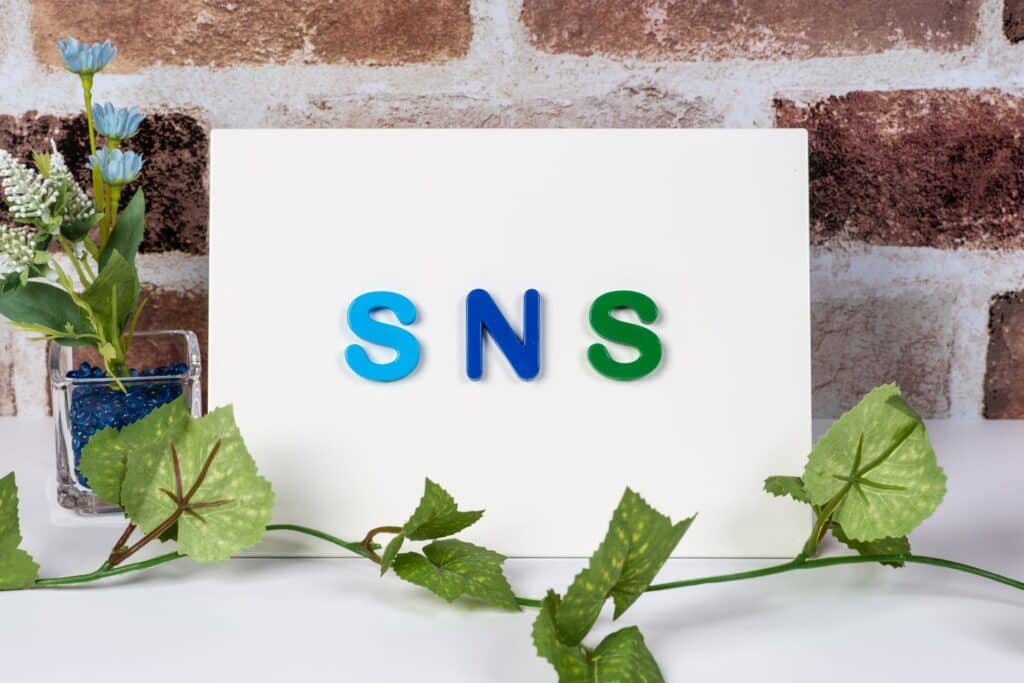Corporate Strategies for Handling Social Media Account Firestorms: Explaining How to Respond When Things Heat Up

In today’s internet society, Social Networking Services (SNS) are an essential tool for businesses aiming for growth. They serve as a powerful means to enhance brand strength and recognition through appealing to customers and communication.
However, there is a risk of losing customer trust if a company’s SNS presence becomes controversial or ‘goes up in flames’. Even posts with no ill intent can be misunderstood, potentially damaging the company’s image. Therefore, it is imperative for businesses to have strategies in place to manage and prevent SNS crises.
This article will discuss how companies should handle SNS controversies and provide effective methods for responding when they occur.
What is a Corporate Social Media Account Firestorm?
A corporate social media account firestorm refers to a situation where content posted by a company on social media platforms such as X (formerly Twitter) or Instagram incurs criticism or condemnation, leading to a rapid and continuous spread of defamation and reputational damage.
The cause of such a firestorm can be inappropriate content in a post, but even without any malice, misunderstandings can also ignite a firestorm. Furthermore, it’s not uncommon for a company’s social media account to become embroiled in controversy due to a corporate scandal rather than a social media post. When a firestorm escalates, it can be picked up by online news outlets, becoming known to people beyond the company’s customers.
The turmoil and defamation resulting from a corporate account firestorm can have a detrimental impact on business activities, not just on social media. The damage from a social media firestorm can extend beyond the digital space, posing a risk of significant real-world consequences.
Patterns of Escalation in Social Media Crises

Even when a corporate account on social media catches fire, there are cases where the situation quickly subsides and others where the crisis escalates. There are several reasons why a social media crisis may worsen, and we will explain each of these in detail.
Lack of Understanding of Crisis Risks by Social Media Managers
If social media managers do not fully comprehend the risks of a corporate account going viral, the likelihood of a crisis increases. For instance, posting thoughtlessly without deeply considering customer perception or touching on sensitive topics prone to backlash can lead to a crisis.
There have also been instances where private social media posts with extreme comments have led to a crisis once the individual’s employer was identified. Social media managers must be cautious with their private social media postings as well.
Insufficient Pre-Posting Content Review
Having a system in place to review content before posting can prevent problematic posts and reduce the risk of a social media crisis.
If there is no established system for pre-posting review, or if the employees responsible for the review lack knowledge and understanding of the risks, the review process fails to function, resulting in crisis-inducing posts on social media.
Delays in Detecting and Responding to a Crisis
A social media crisis does not happen immediately after posting; there is often a lag between the post and the onset of the crisis. Consequently, it can take time to recognize that a crisis is unfolding, which may result in the situation being neglected and allowed to escalate.
Incorrect Initial Response to a Crisis
Even if a crisis is detected early, an incorrect initial response can inadvertently fuel criticism and lead to a secondary crisis.
Deleting the problematic post without explanation, or responding with excuses and evasions without fulfilling the responsibility to explain, can lead to further distrust and exacerbate the crisis.
When a crisis occurs, it is crucial to understand why criticism and escalation have arisen and what kind of response is appropriate. Instead of hastily trying to extinguish the flames, it is important to respond in a way that prevents further escalation of the crisis.
Three Instances of Corporate Social Media Accounts Going Viral for the Wrong Reasons

Here, we present three real-life examples of corporate social media accounts that have experienced significant backlash.
None of these cases are particularly rare, and they could potentially happen to any company.
Controversial Ad Content Sparks Outrage and Criticism
In 2017, a web commercial released on YouTube by a certain soap manufacturer ignited a firestorm of controversy.
The content of the web movie depicted a father who promised to come home early for his son’s birthday, but instead returned late after going out for drinks with a junior colleague who had made a mistake at work. Upon his arrival, his wife, clearly exasperated, asks, “Why do you come home after drinking?” to which the husband responds, “I’m going to take a bath,” and heads to the bathroom.
During the bathing scene, the manufacturer’s soap product is prominently featured. After washing his face as if to switch his mood, the man apologizes to his wife and son and celebrates the son’s birthday. The screen then displays the catchphrase, “Now, let’s wash it away.”
The storyline, which concluded with the father breaking his promise to his son and ending it with the phrase “Now, let’s wash it away,” drew a barrage of criticism from viewers. Furthermore, criticism was also directed at a past advertising poster that showed a woman standing in the corner of an office with a smile, next to the red text, “I made the young employees cry again today. I am filled with self-reproach,” and the same catchphrase “Now, let’s wash it away” at the bottom, which was perceived as condoning bullying and power harassment.
Mistakenly Posting on Corporate Account Instead of Personal Account
An employee in the media industry intended to post a tweet criticizing a political party from their personal account but mistakenly posted it using the corporate account. Although the employee quickly deleted the problematic post, screenshots of the post had already been widely circulated. The employee who posted the tweet was dismissed for disciplinary reasons, and the company has issued an apology, announcing salary reductions and demotions for the managers responsible.
Part-Time Worker Scandal Spreads on X (Formerly Twitter)
There have been cases where part-time employees have caused a stir, known as “part-time terrorism.”
For instance, a food service part-time worker may post an inappropriate video on X (formerly Twitter) that shows them mishandling food products, which are the merchandise, in a frivolous manner inside the store. This can give the public an unsanitary impression of the establishment.
Many who viewed the uploaded video spread it further along with their criticism, which rapidly escalated the controversy. Furthermore, there have been instances where the content of the video and the company’s name were featured in national news. Not only did the company face criticism on the internet, but they also suffered significant losses due to being forced to suspend operations while they scrambled to check, disinfect, and clean their premises.
5 Strategies for Preventing Social Media Blow-Ups on Corporate Accounts

When a corporate social media account goes viral for the wrong reasons, it can attract a multitude of criticisms and defamatory comments, leading to reputational damage and the risk of incurring significant losses. While such incidents can occur unexpectedly, it is crucial to implement measures to prevent them as much as possible.
Establish Clear Social Media Guidelines
There is always a cause behind a social media crisis, and certain content or themes are more prone to sparking controversy. Establishing clear rules for social media use, such as not posting personal information or defamatory content, can help reduce the risk of a blow-up.
Additionally, having an emergency response plan for potential social media crises can enable quick and effective action to de-escalate the situation. By adhering to pre-established rules and responding appropriately and promptly, you can either prevent a blow-up or minimize the damage if one occurs. It’s important to have measures in place not only to prevent a crisis but also to manage one after it has happened.
Develop a Social Media Policy for Employees
It’s also vital to establish a social media policy for employees to prevent inappropriate behavior that could lead to a blow-up. Defining how employees should interact with social media as representatives of the company is one way to mitigate the risk of a crisis.
Conduct Social Media Crisis Training
Beyond setting rules and policies, it’s important to conduct internal training to enhance each employee’s understanding of the risks associated with social media crises. By educating employees about the dangers and encouraging a sense of personal responsibility, the risk of a blow-up can be reduced.
Extending training to part-time and temporary staff can also help prevent incidents of ‘baiting’ by disgruntled workers.
Understand the Diversity of Values and Communicate Appropriately
The way individuals perceive and react to content can vary greatly depending on the times and context. Even if intended as a joke or humor, avoid content that could be construed as harassment or discrimination.
For example, a message expressing concern about whether female employees will get married can be seen as harassment or discrimination in today’s society, potentially causing a blow-up. Also, content that would normally be acceptable can attract criticism for being insensitive if posted soon after a major disaster.
Values are diverse and can vary by age, gender, and other factors. It can be beneficial to have your content reviewed by people from different perspectives.
Two Response Strategies for Handling a Corporate Social Media Crisis

Even with preventive measures in place, the risk of a social media crisis is never zero. Therefore, it is just as important to prepare response strategies for after a crisis occurs. Here are two strategies to handle a situation where your corporate social media account has caught fire.
Verify the Facts and Monitor Reactions to the Criticized Post
First, verify the facts of the crisis and review the post that caused it. Understand why the post ignited a backlash and the reasons or context behind it. Without a proper grasp and verification, merely deleting the post or providing explanations can lead to further criticism and potentially a secondary crisis.
Dedicate Efforts to Restore the Company’s Reputation
Once a social media crisis occurs and information spreads, the damaging content can remain as a digital tattoo. It is crucial to focus on the company’s recovery as quickly as possible, striving to restore its reputation and devising appropriate measures.
For instance, promptly posting apologies or statements on your own website or social media, and carefully explaining the facts and measures to prevent recurrence can be effective. Minimizing the deterioration of the corporate image is vital, as it significantly impacts future business activities.
Summary: Consult a Lawyer for Social Media Crisis Management

Online backlash can happen to anyone in today’s internet society, and for businesses disseminating information, having preemptive and responsive measures for such crises is essential. Particularly, the rapid spread of information on the internet means that swift action can significantly influence the duration and scale of the damage caused by a backlash.
While it is necessary to have measures in place for online crises, it is also true that unexpected elements can trigger a backlash, and it can be challenging to manage the situation when it arises. If you have any concerns, seek the advice of a lawyer, who is an expert in legal matters, for a third-party opinion and professional advice on trouble response. Lawyers can provide comprehensive support, from preemptive measures to handling the situation after a backlash has occurred.
Guidance on Measures by Our Firm
Monolith Law Office is a law firm with extensive experience in both IT and legal aspects, particularly in internet law. In recent years, overlooking information related to reputational damage or defamation spread online can lead to serious consequences. Our firm offers solutions for managing reputational risks and online crises. Details are provided in the article below.
Areas of Practice at Monolith Law Office: Reputational Risk Management for Listed Companies and Others[ja]
Category: Internet





















